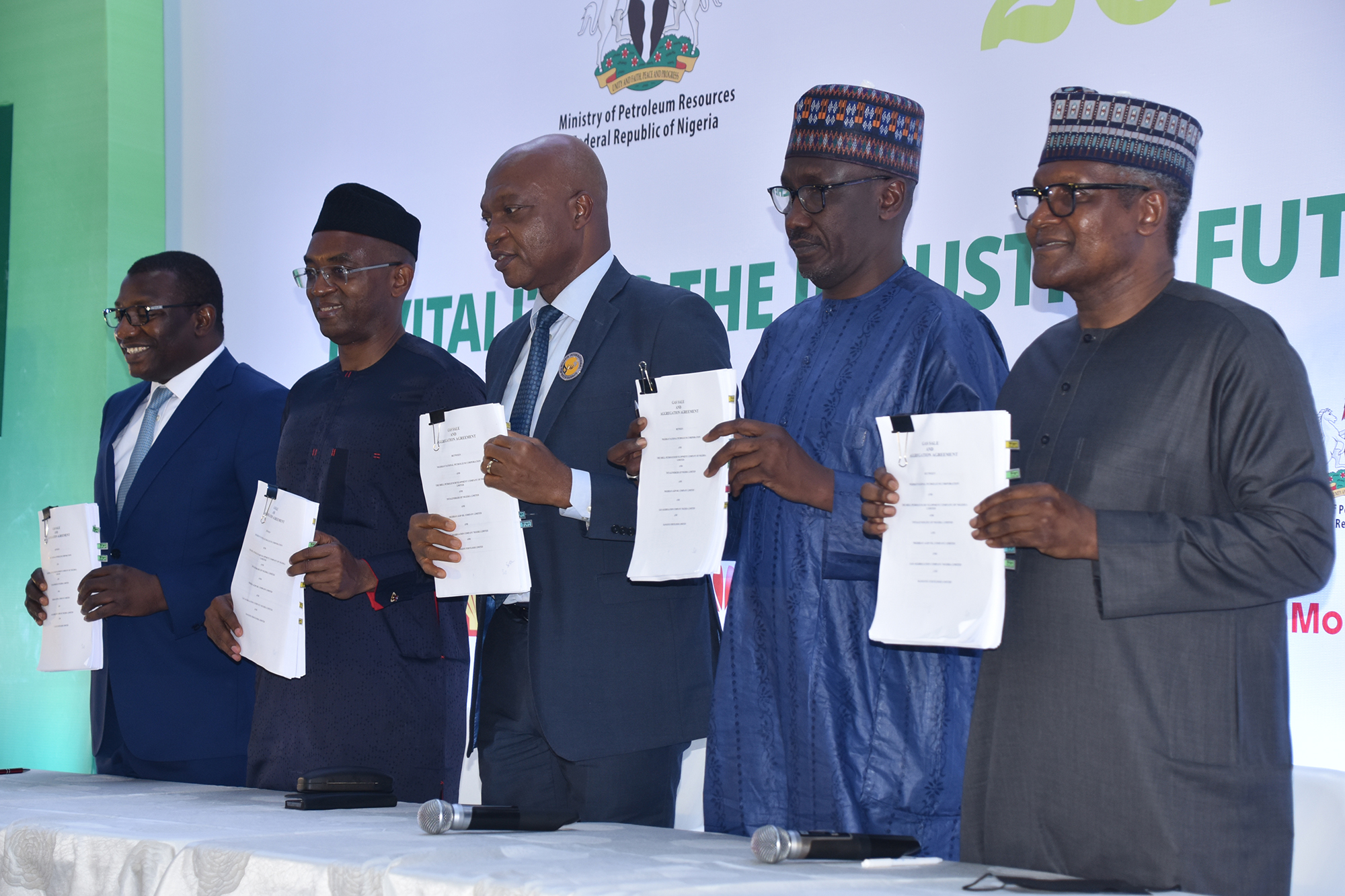Business
House Probes Petrol Subsidy Regime From 2017 To 2021

The House of Representatives has resolved to investigate the petroleum products subsidy regime in Nigeria from 2017 to 2021, and has set up an ad hoc committee to carry out the probe.
The decision of the parliament followed the adoption of a motion, titled “Need to Investigate the Petroleum Products Subsidy Regime in Nigeria from 2017 to 2021”, presented by Sergius Ose Ogun, representing Uromi/Esan North East Federal Constituency of Edo State at plenary.
Moving the motion, Ogun noted that Section 32 of the Petroleum Industry Act, 2021 saddled the Petroleum Midstream and Downstream Regulatory Authority with the task of regulating and monitoring technical and commercial midstream and downstream petroleum operations in Nigeria.
He said: “As of 2002, the NNPC’s purchase of crude oil at international market prices stood at 445,000 barrels per day in order to enable it to provide petroleum products for local consumption.
“Due to the decline in the production capacity of the refineries, NNPC found it more convenient to export domestic crude in exchange for petroleum products on trade by barter basis described as Direct Sales Direct Purchase, DSDP, arrangement.
“The consumption rate of Petroleum Motor Spirit, PMS, is 40million to 45million litres per day, however, the NNPC uses 65 million to 100 million litres per day to determine subsidy as discoverable from NNPC’s monthly reports to the Federal Allocation Committee, FAAC.
“Component costs in the petroleum products subsidy value chain claimed by the NNPC Limited is highly over-bloated while the transfer pump price per litre used by the NNPC Limited in relation to PPMC is under-quoted as N123-N128 instead of N162-N165 and this fraudulent under-reporting of N37-N39 per litre translates into over N70 billion a month or N840 billion naira a year.
“The subsidy regime has been unscrupulously used by the NNPC and other critical stakeholders to subvert the nation’s crude oil revenue to the tune of over S10 billion, with records showing that as at 2021, over $7 billion in over 120 million barrels have been so diverted.
“Disturbed that there exists evidence that subsidy amounts are being duplicated, thus subsidy is charged against petroleum products sales in the books of NNPC as well as against crude oil revenue in the books of NAPIMS to the tune of over N2 trillion action.”
Speaking on the motion earlier, a member of the House, Obinna Chidioka, noted that the prayer of the motion was akin to the committee currently probing the assets and liabilities of NNPC, asking the House to either commit the motion to the committee or step it down.
But his remark was countered by other lawmakers who noted a difference between the two assignments.
Adopting the motion, the speaker, Femi Gbajabiamila, gave the ad hoc committee eight weeks within which to execute the assignment and report back to the House for further legislative action.
Business
NCAA Certifies Elin Group Aircraft Maintenance

Business
SMEDAN, CAC Move To Ease Business Registration, Target 250,000 MSMEs

Business
Blue Economy: Minister Seeks Lifeline In Blue Bond Amid Budget Squeeze

Ministry of Marine and Blue Economy is seeking new funding to implement its ambitious 10-year policy, with officials acknowledging that public funding is insufficient for the scale of transformation envisioned.
Adegboyega Oyetola, said finance is the “lever that will attract long-term and progressive capital critical” and determine whether the ministry’s goals take off.
“Resources we currently receive from the national budget are grossly inadequate compared to the enormous responsibility before the ministry and sector,” he warned.
He described public funding not as charity but as “seed capital” that would unlock private investment adding that without it, Nigeria risks falling behind its neighbours while billions of naira continue to leak abroad through freight payments on foreign vessels.
He said “We have N24.6 trillion in pension assets, with 5 percent set aside for sustainability, including blue and green bonds,” he told stakeholders. “Each time green bonds have been issued, they have been oversubscribed. The money is there. The question is, how do you then get this money?”
The NGX reckons that once incorporated into the national budget, the Debt Management Office could issue the bonds, attracting both domestic pension funds and international investors.
Yet even as officials push for creative financing, Oloruntola stressed that the first step remains legislative.
“Even the most innovative financial tools and private investments require a solid public funding base to thrive.
It would be noted that with government funding inadequate, the ministry and capital market operators see bonds as alternative financing.
-

 Rivers2 days ago
Rivers2 days agoFTAN Gets New State Coordinator … To Push For Tourism
-
News2 days ago
NDLEA arrests two drug kingpins in Lagos, seizes cocaine, heroine
-

 Rivers2 hours ago
Rivers2 hours agoPHCCIMA, Others Laud ‘Made In Nigeria Conferences, Exhibitions’ Organisers
-

 Sports2 days ago
Sports2 days agoGroup lauds Foundation’s contribution to football, youth dev.
-
Education2 days ago
Lga boss tasks corp members on diligent service to fatherland
-

 Sports3 hours ago
Sports3 hours agoBoxing: Khan Brings Chaos In Ring To Lagos
-

 Politics2 days ago
Politics2 days agoNew PDP Leaders Emerge In Adamawa After Congress
-

 Sports2 days ago
Sports2 days agoForest Still Looking For Winning Formula

